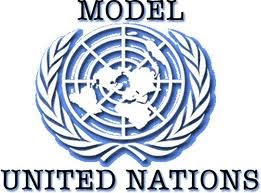* Gaddafi says will open arm depots to the masses
* Libya will exercise its right to self-defence -Gaddafi
* Says interests of countries in Mediterranean face danger
* Urges Africans, Arabs, Latin Americans, Asians to help (Adds quotes)
TUNIS, March 20 (Reuters) - A defiant Muammar Gaddafi said on Saturday he will arm civilians to defend Libya from what he called "colonial, crusader" aggression by Western forces that have launched air strikes against him.
"It is now necessary to open the stores and arm all the masses with all types of weapons to defend the independence, unity and honour of Libya," Gaddafi said in an audio message broadcast on state television hours after the strikes began.
He said Libya would exercise its right to self defence under article 51 of the United Nations charter, adding the Mediterranean and North Africa were now a battleground.
"The interests of countries face danger from now on in the Mediterranean because of this aggressive and mad behaviour," he said.
"Unfortunately, due to this (action), marine and air targets, whether military or civilian, will be exposed to real danger in the Mediterranean, since the area of the Mediterranean and North Africa has become a battleground because of this blatant military agression."
He also called on Arab, Islamic, African, Latin American and Asian countries to "stand by the heroic Libyan people to confront this aggression, which will only increase the Libyan people's strength, firmness and unity".
(Reporting by Tarek Amara in Tunis, Sarah Mikhail and Edmund Blair in Cairo; Writing by Silvia Aloisi; Editing by Louise Ireland)
* Libya will exercise its right to self-defence -Gaddafi
* Says interests of countries in Mediterranean face danger
* Urges Africans, Arabs, Latin Americans, Asians to help (Adds quotes)
TUNIS, March 20 (Reuters) - A defiant Muammar Gaddafi said on Saturday he will arm civilians to defend Libya from what he called "colonial, crusader" aggression by Western forces that have launched air strikes against him.
"It is now necessary to open the stores and arm all the masses with all types of weapons to defend the independence, unity and honour of Libya," Gaddafi said in an audio message broadcast on state television hours after the strikes began.
He said Libya would exercise its right to self defence under article 51 of the United Nations charter, adding the Mediterranean and North Africa were now a battleground.
"The interests of countries face danger from now on in the Mediterranean because of this aggressive and mad behaviour," he said.
"Unfortunately, due to this (action), marine and air targets, whether military or civilian, will be exposed to real danger in the Mediterranean, since the area of the Mediterranean and North Africa has become a battleground because of this blatant military agression."
He also called on Arab, Islamic, African, Latin American and Asian countries to "stand by the heroic Libyan people to confront this aggression, which will only increase the Libyan people's strength, firmness and unity".
(Reporting by Tarek Amara in Tunis, Sarah Mikhail and Edmund Blair in Cairo; Writing by Silvia Aloisi; Editing by Louise Ireland)















